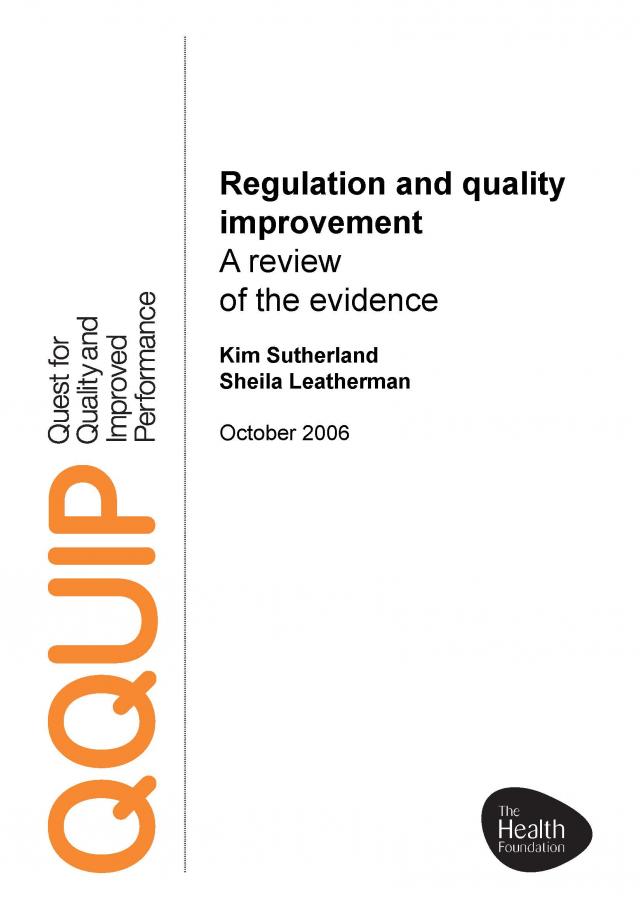Regulation and quality improvement A review of the evidence
October 2006
About 1 mins to read

Key points
- When trying to improve health through regulation, what works?
- Overall, the evidence available to answer this question is sparse.
- Research evidence about the impact of regulatory interventions on quality of healthcare is drawn primarily from observational studies. This means that the links between regulation and improvements in quality are primarily associative rather than causal.
- The evidence base largely emanates from the US, making the contextual interpretation challenging for other countries.
- We have reviewed what evidence does exist under the following headings: institutional regulation, professional regulation and market regulation.
Vast amounts of resources are expended on regulating healthcare with three key purposes:
- to improve performance and quality
- to provide assurance that minimally acceptable standards are achieved
- to provide accountability both for levels of performance and value for money.
As it is not possible to achieve optimal performance across all three purposes simultaneously, trade-offs are required. This report address the question: when trying to improve health through regulation, what works?
Related downloads
Work with us
We look for talented and passionate individuals as everyone at the Health Foundation has an important role to play.
View current vacanciesThe Q community
Q is an initiative connecting people with improvement expertise across the UK.
Find out more

